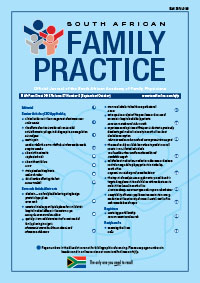Acceptability of human papillomavirus vaccination among academics at the University of KwaZulu-Natal, South Africa
Keywords:
awareness, cervical cancer, effectiveness, health education, willingness
Abstract
Background: The South African Government has recently implemented the human papillomavirus (HPV) vaccination programme through the school health system. For the vaccination programme to be effective, it is important to investigate the acceptability of the vaccines among university academics. The objective of this study was to determine the awareness and acceptability of HPV vaccination among university academics, and to investigate whether health information increases the acceptability of the vaccines. Materials and methods: This was a cross-sectional study conducted among academics from the University of KwaZulu-Natal — excluding medical school academics. Data were collected using a self-administered anonymous questionnaire, via an online survey. Results: It was found that most academics were aware of cervical cancer and HPV infections. The health information regarding HPV infections and vaccines had significantly increased the acceptance of HPV vaccine for their daughters (79% to 88%, p < 0.05). There was a knowledge gap regarding the safety and effectiveness of the vaccines. Conclusion: University academics need to be educated on this preventable disease so that they can provide accurate information to their students, who are in the high-risk population for cervical cancer. (Full text available online at www.medpharm.tandfonline.com/ojfp) S Afr Fam Pract 2015; DOI: 10.1080/20786190.2015.1078157
Published
2015-08-26
Section
Research Articles
By submitting manuscripts to SAFP, authors of original articles are assigning copyright to the South African Academy of Family Physicians. Copyright of review articles are assigned to the Publisher, Medpharm Publications (Pty) Ltd, unless otherwise specified. Authors may use their own work after publication without written permission, provided they acknowledge the original source. Individuals and academic institutions may freely copy and distribute articles published in SAFP for educational and research purposes without obtaining permission.

